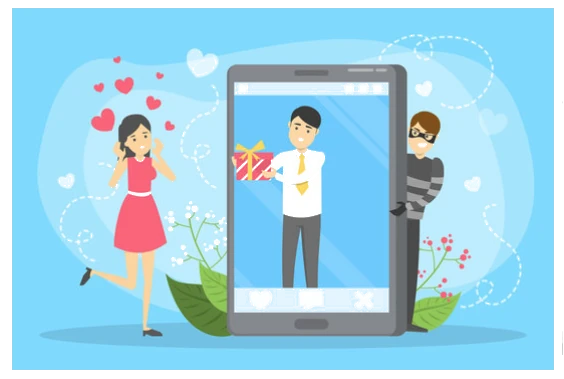Tips! Avoiding Relationship Scams
We've all heard the stories of people being scammed out of money by scammers of one kind or another, but so-called relationship scammers are a breed unto themselves (a very low-life breed!). Often seeming to tick all the boxes of the perfect partner or friend, these relationship scammers take the time to build victims' trust in them, and affections for them, before depriving them of their savings, and even their property. And, of course, that's not to mention the sense of betrayal, loss of self-worth, anger and heartache.

Relationship Scams
Could it happen to you?
Yes. We'd all like to think we're smart enough to avoid being taken advantage of, and that although relationship scams might happen to other people, it would never happen to us. Of course, that's exactly what many victims of such scams also said to themselves prior to becoming victims. The bottom line is that obviously you can avoid being scammed - but you need to be aware of the tell-tale signs which should indicate concern about the new person in your life.
Lots of smart people fall victim to scams. You don't need to be a dummy to be taken advantage of. Besides the guile and charm of the scammer, the ego, passion, loneliness of the scammer's target all play their part. However, if you pay heed to potential warning signs then you can avoid being another victim.
In particular we're referring to online relationship scams, where people might meet through some sort of dating website, or other social media, and where often the victim and scammer have never actually met in real life. However, the same rules of "trust but verify" (or even "verify then trust") apply in every situation.
A scammer bent on trying to extract funds from you will try every trick in the book, and the scams often work because (unfortunately) they're very good at what they do, they're well-practiced at it, and they have no compunction about lying to you about anything or everything. That's their mission! They want your money, not you. You, on the other hand, are trusting; you want to help people when you can; you want to believe the stories you're being told, so there's a bias towards doing so (even if evidence may suggest not to); and you're almost certainly not as practiced at this game as the relationship scammer.
First, take a look at this website from the FTC (Federal Trade Commission) about romance scams and how to avoid becoming a victim:
https://consumer.ftc.gov/articles/what-you-need-know-about-romance-scams
Here are some other tips to avoid being taken advantage of. These red flags may mean your new friendship or relationship is not all that it seems:
- You message each other regularly but you’ve never met in person or video-called them.
- If it’s a romantic relationship, they may tell you they love you very quickly.
- They’re very interested in you and your personal life. But, on reflection, you know far less about them.
- They have a job, but don’t tell you where it is, or may be vague or imply they can’t tell you more for security reasons.
- They have a sudden sad change in circumstances and need an emergency loan to fix it.
- An emergency in their family (always a costly one!), and need money so they can visit family quickly. (it's tempting to want to believe someone who apparently cares so much for their family, but don't be tempted)
- They've so-say become a victim of misfortune themselves (lost a job; illness; robbed, etc.) and just need funds temporarily (of course) and will pay you back quickly (NB. in scammer-speak that means never).
So, be extremely wary of any requests for money and, although it can be difficult, try to remove any emotion from your decision making process. You should always consider first that it may be a scam, and that's especially true if any of the warning signs above are ringing bells.
If you remember nothing else from this article, please remember at least this:
No matter how persistent the friend or romantic interest may be, no matter how compelling their story, never send or transfer money, gift cards or any personal or security details to anyone you’ve recently met online. And, better still, apply the same rules to anyone you've never met in person at all.

